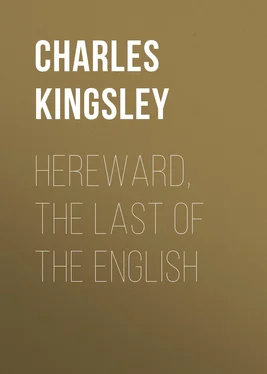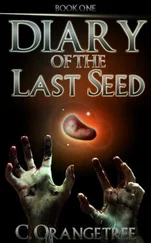Charles Kingsley - Hereward, the Last of the English
Здесь есть возможность читать онлайн «Charles Kingsley - Hereward, the Last of the English» — ознакомительный отрывок электронной книги совершенно бесплатно, а после прочтения отрывка купить полную версию. В некоторых случаях можно слушать аудио, скачать через торрент в формате fb2 и присутствует краткое содержание. Жанр: foreign_prose, История, foreign_edu, foreign_antique, на английском языке. Описание произведения, (предисловие) а так же отзывы посетителей доступны на портале библиотеки ЛибКат.
- Название:Hereward, the Last of the English
- Автор:
- Жанр:
- Год:неизвестен
- ISBN:нет данных
- Рейтинг книги:4 / 5. Голосов: 1
-
Избранное:Добавить в избранное
- Отзывы:
-
Ваша оценка:
- 80
- 1
- 2
- 3
- 4
- 5
Hereward, the Last of the English: краткое содержание, описание и аннотация
Предлагаем к чтению аннотацию, описание, краткое содержание или предисловие (зависит от того, что написал сам автор книги «Hereward, the Last of the English»). Если вы не нашли необходимую информацию о книге — напишите в комментариях, мы постараемся отыскать её.
Hereward, the Last of the English — читать онлайн ознакомительный отрывок
Ниже представлен текст книги, разбитый по страницам. Система сохранения места последней прочитанной страницы, позволяет с удобством читать онлайн бесплатно книгу «Hereward, the Last of the English», без необходимости каждый раз заново искать на чём Вы остановились. Поставьте закладку, и сможете в любой момент перейти на страницу, на которой закончили чтение.
Интервал:
Закладка:
Then showing proudly the fresh wounds on his bare arms, he sang of his fight with the Cornish ogre, and his adventure with the Princess. But always, though he went into the most minute details, he concealed the name both of her and of her father, while he kept his eyes steadily fixed on Ranald’s eldest son, Sigtryg, who sat at his father’s right hand.
The young man grew uneasy, red, almost angry; till at last Hereward sang,—
“A gold ring she gave me
Right royally dwarf-worked,
To none will I pass it
For prayer or for sword-stroke,
Save to him who can claim it
By love and by troth plight,
Let that hero speak
If that hero be here.”
Young Sigtryg half started from his feet: but when Hereward smiled at him, and laid his finger on his lips, he sat down again. Hereward felt his shoulder touched from behind. One of the youths who had risen when he sat down bent over him, and whispered in his ear,—
“Ah, Hereward, we know you. Do you not know us? We are the twins, the sons of your sister, Siward the White and Siward the Red, the orphans of Asbiorn Siwardsson, who fell at Dunsinane.”
Hereward sprang up, struck the harp again, and sang,—
“Outlaw and free thief,
My kinsfolk have left me,
And no kinsfolk need I
Till kinsfolk shall need me.
My sword is my father,
My shield is my mother,
My ship is my sister,
My horse is my brother.”
“Uncle, uncle,” whispered one of them, sadly, “listen now or never, for we have bad news for you and us. Your father is dead, and Earl Algar, your brother, here in Ireland, outlawed a second time.”
A flood of sorrow passed through Hereward’s heart. He kept it down, and rising once more, harp in hand,—
“Hereward, king, hight I,
Holy Leofric my father,
In Westminster wiser
None walked with King Edward.
High minsters he builded,
Pale monks he maintained.
Dead is he, a bed-death,
A leech-death, a priest-death,
A straw-death, a cow’s death.
Such doom I desire not.
To high heaven, all so softly,
The angels uphand him,
In meads of May flowers
Mild Mary will meet him.
Me, happier, the Valkyrs
Shall waft from the war-deck,
Shall hail from the holmgang
Or helmet-strewn moorland.
And sword-strokes my shrift be,
Sharp spears be my leeches,
With heroes’ hot corpses
High heaped for my pillow.”
“Skall to the Viking!” shouted the Danes once more, at this outburst of heathendom, common enough among their half-converted race, in times when monasticism made so utter a divorce between the life of the devotee and that of the worldling, that it seemed reasonable enough for either party to have their own heaven and their own hell. After all, Hereward was not original in his wish. He had but copied the death-song which his father’s friend and compeer, Siward Digre, the victor of Dunsinane, had sung for himself some three years before.
All praised his poetry, and especially the quickness of his alliterations (then a note of the highest art); and the old king filling not this time the horn, but a golden goblet, bid him drain it and keep the goblet for his song.
Young Sigtryg leapt up, and took the cup to Hereward. “Such a scald,” he said, “ought to have no meaner cup-bearer than a king’s son.”
Hereward drank it dry; and then fixing his eyes meaningly on the Prince, dropt the Princess’s ring into the cup, and putting it back into Sigtryg’s hand, sang,—
“The beaker I reach back
More rich than I took it.
No gold will I grasp
Of the king’s, the ring-giver,
Till, by wit or by weapon,
I worthily win it.
When brained by my biter
O’Brodar lies gory,
While over the wolf’s meal
Fair widows are wailing.”
“Does he refuse my gift?” grumbled Ranald.
“He has given a fair reason,” said the Prince, as he hid the ring in his bosom; “leave him to me; for my brother in arms he is henceforth.”
After which, as was the custom of those parts, most of them drank too much liquor. But neither Sigtryg nor Hereward drank; and the two Siwards stood behind their young uncle’s seat, watching him with that intense admiration which lads can feel for a young man.
That night, when the warriors were asleep, Sigtryg and Hereward talked out their plans. They would equip two ships; they would fight all the kinglets of Cornwall at once, if need was; they would carry off the Princess, and burn Alef’s town over his head, if he said nay. Nothing could be more simple than the tactics required in an age when might was right.
Then Hereward turned to his two nephews who lingered near him, plainly big with news.
“And what brings you here, lads?” He had hardened his heart, and made up his mind to show no kindness to his own kin. The day might come when they might need him; then it would be his turn.
“Your father, as we told you, is dead.”
“So much the better for him, and the worse for England. And Harold and the Godwinssons, of course, are lords and masters far and wide?”
“Tosti has our grandfather Siward’s earldom.”
“I know that. I know, too, that he will not keep it long, unless he learns that Northumbrians are free men, and not Wessex slaves.”
“And Algar our uncle is outlawed again, after King Edward had given him peaceably your father’s earldom.”
“And why?”
“Why was he outlawed two years ago?”
“Because the Godwinssons hate him, I suppose.”
“And Algar is gone to Griffin, the Welshman, and from him on to Dublin to get ships, just as he did two years ago; and has sent us here to get ships likewise.”
“And what will he do with them when he has got them? He burnt Hereford last time he was outlawed, by way of a wise deed, minster and all, with St. Ethelbert’s relics on board; and slew seven clergymen: but they were only honest canons with wives at home, and not shaveling monks, so I suppose that sin was easily shrived. Well, I robbed a priest of a few pence, and was outlawed; he plunders and burns a whole minster, and is made a great earl for it. One law for the weak and one for the strong, young lads, as you will know when you are as old as I. And now I suppose he will plunder and burn more minsters, and then patch up a peace with Harold again; which I advise him strongly to do; for I warn you, young lads, and you may carry that message from me to Dublin to my good brother your uncle, that Harold’s little finger is thicker than his whole body; and that, false Godwinsson as he is, he is the only man with a head upon his shoulders left in England, now that his father, and my father, and dear old Siward, whom I loved better than my father, are dead and gone.”
The lads stood silent, not a little awed, and indeed imposed on, by the cynical and worldly-wise tone which their renowned uncle had assumed.
At last one of them asked, falteringly, “Then you will do nothing for us?”
“For you, nothing. Against you, nothing. Why should I mix myself up in my brother’s quarrels? Will he make that white-headed driveller at Westminster reverse my outlawry? And if he does, what shall I get thereby? A younger brother’s portion; a dirty ox-gang of land in Kesteven. Let him leave me alone as I leave him, and see if I do not come back to him some day, for or against him as he chooses, with such a host of Vikings’ sons as Harold Hardraade himself would be proud of. By Thor’s hammer, boys, I have been an outlaw but five years now, and I find it so cheery a life, that I do not care if I am an outlaw for fifty more. The world is a fine place and a wide place; and it is a very little corner of it that I have seen yet; and if you were of my mettle, you would come along with me and see it throughout to the four corners of heaven, instead of mixing yourselves up in these paltry little quarrels with which our two families are tearing England in pieces, and being murdered perchance like dogs at last by treachery, as Sweyn Godwinsson murdered Biorn.”
Читать дальшеИнтервал:
Закладка:
Похожие книги на «Hereward, the Last of the English»
Представляем Вашему вниманию похожие книги на «Hereward, the Last of the English» списком для выбора. Мы отобрали схожую по названию и смыслу литературу в надежде предоставить читателям больше вариантов отыскать новые, интересные, ещё непрочитанные произведения.
Обсуждение, отзывы о книге «Hereward, the Last of the English» и просто собственные мнения читателей. Оставьте ваши комментарии, напишите, что Вы думаете о произведении, его смысле или главных героях. Укажите что конкретно понравилось, а что нет, и почему Вы так считаете.












